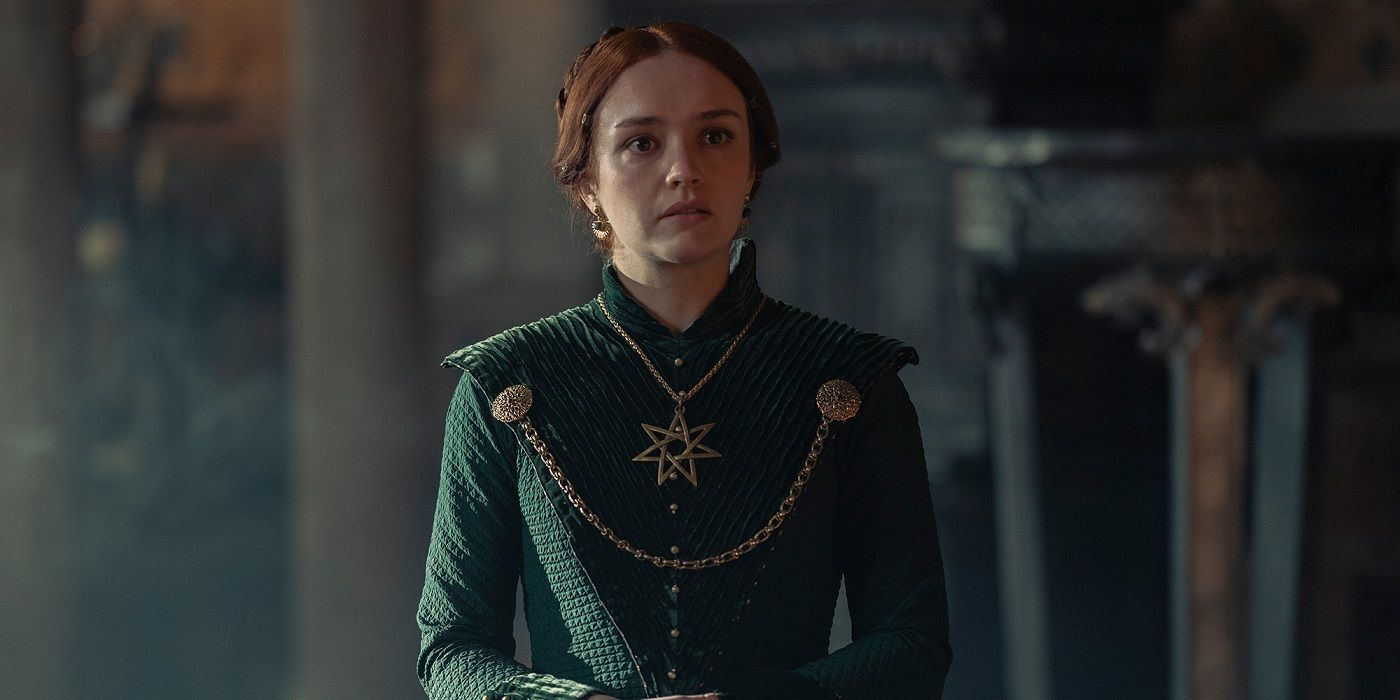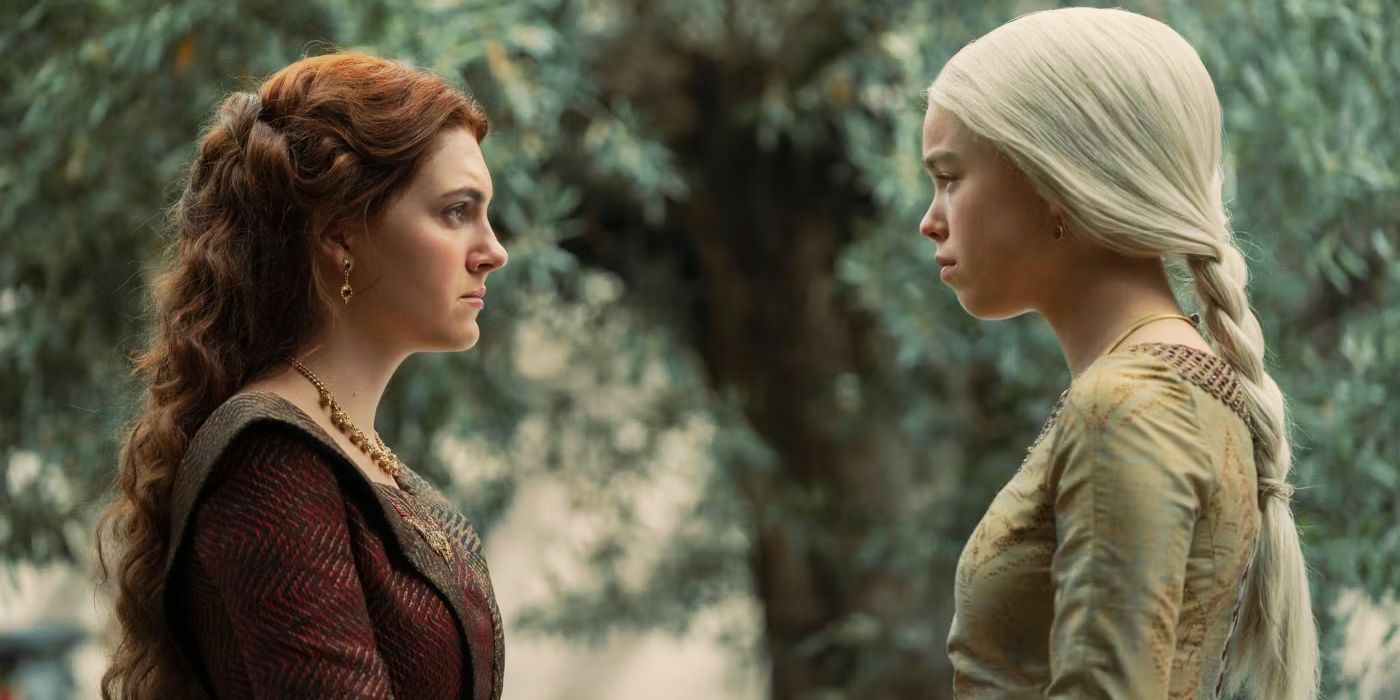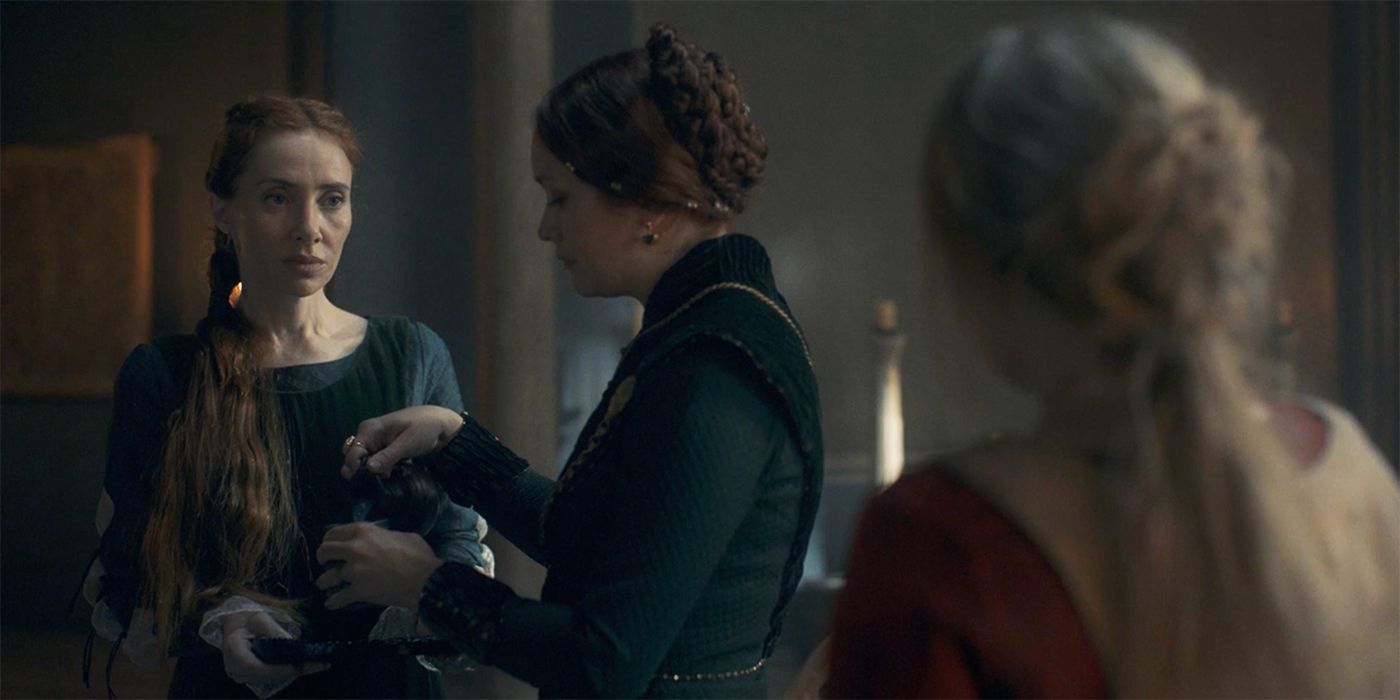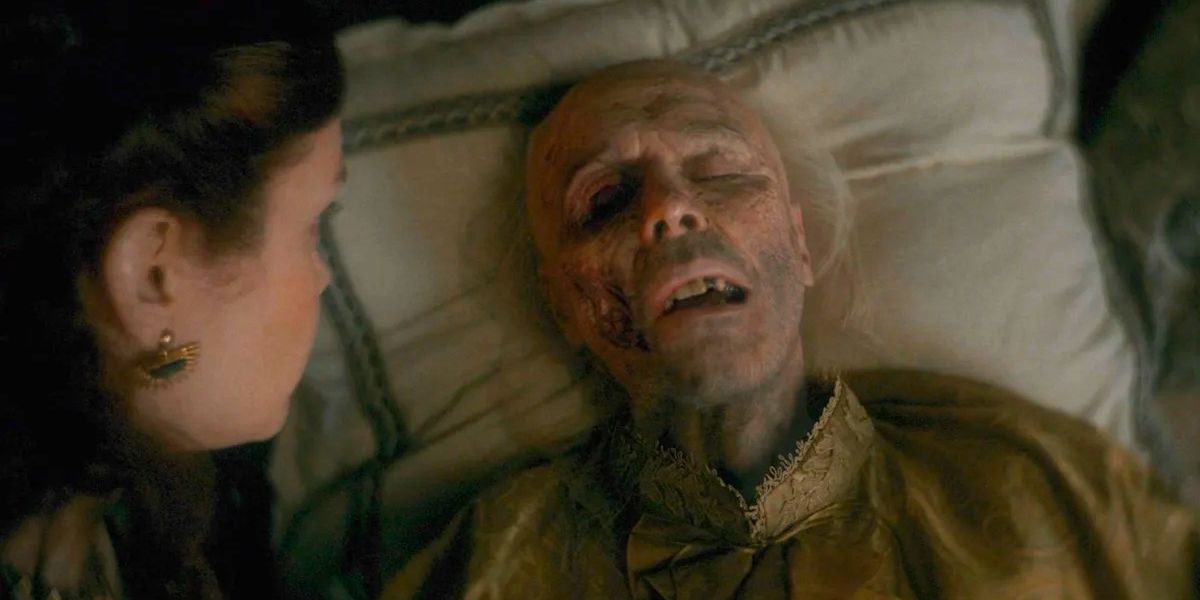Editor's Note: The following contains spoilers for Episodes 1-8 of House of the Dragon.Since the start of House of the Dragon, every character has been expanding from the source material the show is based upon. The series gave each character's motivations that were hinted at or simply non-existent in George R. R. Martin’s Fire & Blood novel.
If every character has benefited from this expansion of the source material, no character has benefited more than Alicent Hightower (Olivia Cooke/Emily Carey).
In the novel, Alicent Hightower comes off as very one-note. While every character in the Dance of Dragons comes out pretty awful and has a very selfish motivation, Alicent is one of those characters who is never given proper motivation outside of wanting her son on the throne. She is selfish and cunning, but most of her desire is driven by her wanting power. While it makes for a good villain in the books – especially given that Fire & Blood is told through an unreliable narrator – it doesn’t create a compelling character for television. So, of course, the series had to expand on the characters and her motivations.
But how are they able to do so?
Exploring Alicent's Youth and Relationship With Rhaenyra
The first five episodes of the series spend a lot of time with the younger version of Alicent and Rhaenyra (Milly Alcock). Unlike the book, which doesn’t focus much on their youth, the show spends a lot of time with the younger versions of the characters, and it aged down Alicent so that she could be the same age as Rhaenyra. And it benefits Alicent the most.
From her first introduction on the show, Alicent is shown to be nervous, demonstrated through her picking at her fingernails. From her first appearance, the show makes a point to show that Alicent is just a child who is put into an impossible situation, a situation forced upon her by the patriarchy. That one small detail gives so much context to who Alicent is; it’s a small choice but creates a lot of context for Alicent in general. Alicent’s path to becoming who she is starts when her father sends her to Viserys (Paddy Considine) after his wife’s death. The moment her father starts using her as a pawn, she becomes part of a game in which she has no say. But it also drives the downfall of her relationship with Rhaenyra.
In the book, Rhaenyra and Alicent have no established friendship, and most of their hatred toward one another is driven by their ambition of having power. But, the show veered away from that and instead decided to make both of them the same age and established a deep connection between them from the first moments of the series. By linking them together and seeing their friendship implode as Alicent is thrown into this world by men who control her life, the show gives Alicent so much nuance. She isn’t the cunning and manipulative woman that the book describes. Instead, she is a child who was made to marry a man much older than her because of duty and manipulated by a father who acts like he wants the best for her and uses her to gain political power at every turn.
Alicent Hides Behind Her Righteousness and Religion
By exploring Alicent’s youth, House of the Dragon can give context to her change in adulthood. Once the ten years time jump is made, Alicent is not the same person that we got the chance to watch for the first five episodes. While behind the surface, she is still the young child that never wanted any of this, she hides behind righteousness and, later, her faith.
Adult Alicent hides behind the facade of holding up righteousness and the values of the land. Of course, that was something that the book also explores, but more importantly, this facet now has much more context than before. Alicent’s point of view consistently returns to her youth and what happened to her. It’s a choice that makes her point of view so much more nuanced but also creates tension. Because Alicent hides behind this, but in truth, she wants nothing more than to get her friend back; it’s at the core of everything she does. Her fears drive her hatred toward Rhaenyra (Emma D’Arcy) and her wanting the life that Rhaenyra got, choices that she never had a chance to make because it was forced upon her while her friend got to make those.
While in Fire & Blood, her family, The Hightower, is always said to be close to the Faith of the Seven, the show doesn’t address that aspect until Episode 8. It decides to have Alicent hide behind her faith because of her outburst from Episode 7. It’s a smart choice that showcases her shame and brings it back to what many of Alicent’s choices have been about: hiding. By having her hide behind her righteousness and her newfound devotion to her faith, House of the Dragon can make The Greens and Alicent's choices less one note. Yes, when Alicent finds out about the girl that Aegon abused, she has a lot of sympathy for her, but then, her need to maintain appearances takes over, and she returns to being the Queen whom we have seen since the time jump. It creates this character that gives Olivia Cooke so much to play with.
Aegon’s Prophecy and the Start of the Civil War
But the show's most significant change comes from having Aegon the Conqueror’s prophecy into the series and making it an important plot point. The prophecy was mentioned in the first episode but never seemed to be an essential part of the central conflict. That was until the end of episode eight. While it might seem on the surface that the show decided to use Viserys’ dying words and Alicent’s misunderstanding of them to start the war, it is much more than that. Alicent chose to hear what she wanted. Viserys was speaking under the influence of milk of the poppy, but even then, his words were coherent and made sense. Alicent chose to hear what she wanted.
She and Rhaenyra might attempt some semblance of peace at the end of the dinner, but that doesn’t erase years of conflict. Alicent has hidden behind faith and righteousness for so long that she will take it when she is given an excuse to do so again. It isn’t a cheap cop-out to explain the start of the Targaryen civil war, instead, it is something that the writers have hinted at with Alicent’s character since the very first time. She is someone who hides behind other people’s choices to conceal her desires and ambitions. The series shows that her choices are still her own, but her past very much influences them. It’s something that the book never does, and it helps craft a character that might be a villain in the eyes of many, but in reality, it is as much a victim in the grand scheme of things.




